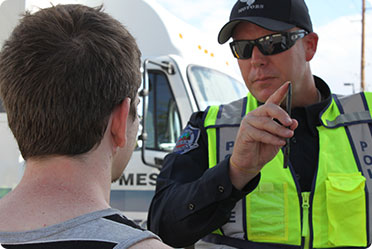
Common Drugs In DWI Cases
A few drugs I frequently encounter in cases I handle include marijuana, prescription medications, and heroin. Sometimes, fentanyl is involved, too – especially in instances where heroin is. But in the vast majority of these situations, the cases revolve around a single drug, not a cocktail of substances.
This matters because it directly affects how the case is prosecuted and how the defense is built.
The Challenges Of Proving Drug-Related Impairment
The New Jersey Supreme Court’s decision in State v. Olenowski has dramatically reshaped how the state must handle drug-related DWI prosecutions. Prior to this ruling, the state often relied on Drug Recognition Experts (DREs) to testify not just that someone had used drugs but that the drugs caused impairment that rendered them unable to drive safely.
DREs are specially trained officers certified to assess whether someone is under the influence of drugs. Their evaluations involve a structured, multi-step process that often takes several hours to complete.
But relying on drug recognition experts as the state used to is no longer allowed.
Under Olenowski, a drug recognition expert cannot give an opinion that a person’s mental or physical faculties were diminished due to drugs. Instead, they can only testify about observed signs that might indicate drug use and what category of drug those signs might be consistent with, be it cannabis, an opioid, or an inhalant.
Now, the state must independently establish the causal link between:
- The officer’s and drug recognition expert’s observations
- The results of lab tests, whether urine or blood
- The defendant’s actual impairment behind the wheel
It’s a much higher burden of proof, and a skilled defense attorney can somewhat readily exploit that gap when the evidence is insufficient or the connection is unclear.
Timing Is Everything
In order to be meaningful, toxicology results need to reflect the person’s condition at or near the time of driving. Some drugs like marijuana or cocaine are metabolized quickly, and their impairing effects fade fast.
Others, like methamphetamines or even alcohol, linger a little longer. This means officers want to collect blood or urine samples as soon as possible when administering a test in compliance with NJ field sobriety test laws. However, in New Jersey, they cannot force a driver to provide a sample without a warrant.
Instead, they often rely on a process called informed consent. Officers present a standardized Attorney General-approved form to the driver, explaining that refusal to provide a sample could carry consequences. But whether that consent was truly “informed” very often becomes a key point of contention during trial. If the consent was coerced, unclear, or improperly obtained, the results could be suppressed.
Importantly, the state doesn’t have to prove which specific drug caused the impairment. That may seem unfair, especially considering the science involved. The Olenowski ruling ensures the state can’t take shortcuts; but, rather, it must connect all the dots.
Understanding this is vital for drivers and their families. A DWI arrest isn’t the same as a conviction. If you’ve been charged, remember: you still have rights. You have defenses. And the state must meet strict legal standards to secure a conviction. Don’t let them cut corners. Make them prove their case beyond a reasonable doubt.
Still Have Questions? Ready To Get Started?
For more information on NJ field sobriety test laws, an initial consultation is your next best step. Get the information and legal answers you are seeking by calling (856) 429-2323 today.
